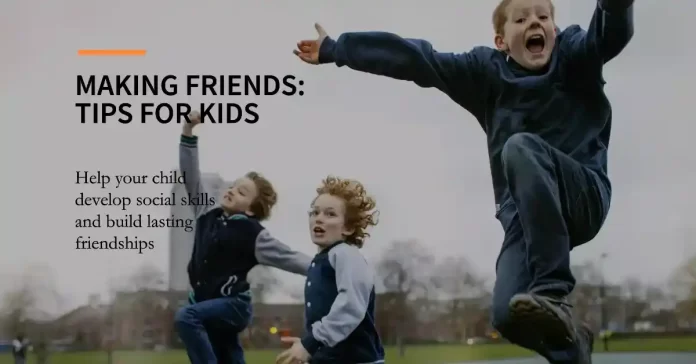Helping children develop secure social skills and form meaningful friendships is crucial for their well-being. This article provides practical strategies, techniques, and expert advice for parents to support their child’s social development. Parents can play a vital role in helping their children navigate social interactions and build lasting friendships, from fostering positive social behavior to teaching effective communication and problem-solving skills.
Nurturing Your Child’s Social Skills for Meaningful Friendships
Model positive social behavior
Demonstrate empathy, kindness, and good social skills in your interactions, and actively encourage your child to do the same.Foster open communication
Teach your child successful communication skills, such as active listening, maintaining eye contact, and taking turns in conversations. Motivate them to express their thoughts and feelings openly.Provide opportunities for social interaction
Create opportunities for your child to engage in social activities, such as playdates, joining clubs or teams, or participating in group activities that align with their interests.Teach problem-solving skills
Help your child learn how to resolve conflicts and navigate social challenges. Teach them strategies like compromising, active problem-solving, and seeking help from a trusted adult when needed.Role-play social situations
Practice common social scenarios with your child through role-play. It helps them develop skills in initiating conversations, joining groups, or handling social challenges like rejection.Teach empathy and perspective-taking
Help your child understand and empathize with others’ feelings and perspectives. Cheer them to consider how their words and actions impact others.Foster assertiveness
Teach your child to assert their needs, express themselves confidently, and set boundaries in social interactions. It will empower them to navigate social situations effectively.Encourage teamwork and collaboration
Engage your child in activities that involve teamwork and collaboration, such as group projects or team sports. These experiences help them develop skills in cooperation and working towards common goals.Practice good social etiquette
Teach your child basic manners and social etiquette, such as saying “please” and “thank you,” taking turns, and respecting personal space. These small gestures contribute to positive social interactions.Build resilience and self-confidence
Guide your child to develop resilience by teaching them how to bounce back from social setbacks or rejections. Encourage their strengths, celebrate their achievements, and provide a supportive environment for their social growth.
Final Words
Nurturing your child’s social skills and assisting them in making friends contributes to their growth and happiness. Parents can empower their children to develop strong social connections, communicate effectively, solve conflicts, and navigate social challenges. Remember, each child is unique, so adapt these approaches to suit your child’s needs and personality. You can set your child on the path to building meaningful friendships and thriving in social settings with patience, guidance, and support.
Frequently Asked Questions (FAQs)
How can I help my shy or introverted child become more comfortable in social situations?
Such as gradually exposing your child to social settings, encouraging them to join activities aligned with their interests, and teaching them relaxation techniques to manage anxiety.
My child seems to have trouble making friends. What can I do to support them?
Focus on teaching your child social skills like active listening, sharing, and empathy. Motivate them to participate in activities where they can meet like-minded peers and consider organizing playdates to foster social connections.
My child experiences social rejection. How can I help them cope with this?
Validate their feelings and provide emotional support. Help them understand that rejection is an everyday part of life. Uplift them to focus on their strengths and foster resilience in handling social setbacks.
Are there any red flags in my child’s social development?
Every child develops at their pace difficulty forming friendships, extreme social withdrawal, or aggressive behavior may warrant further evaluation. Consult with a pediatrician or child development specialist if you have concerns about your child’s social development.
Should I intervene when my child has conflicts with their friends?
Teaching conflict resolution skills and nurturing your child’s independence in resolving minor conflicts holds significant morals. However, if the situation involves bullying, serious harm, or repeated incidents, it may be necessary to step in and involve appropriate adults or authorities.











